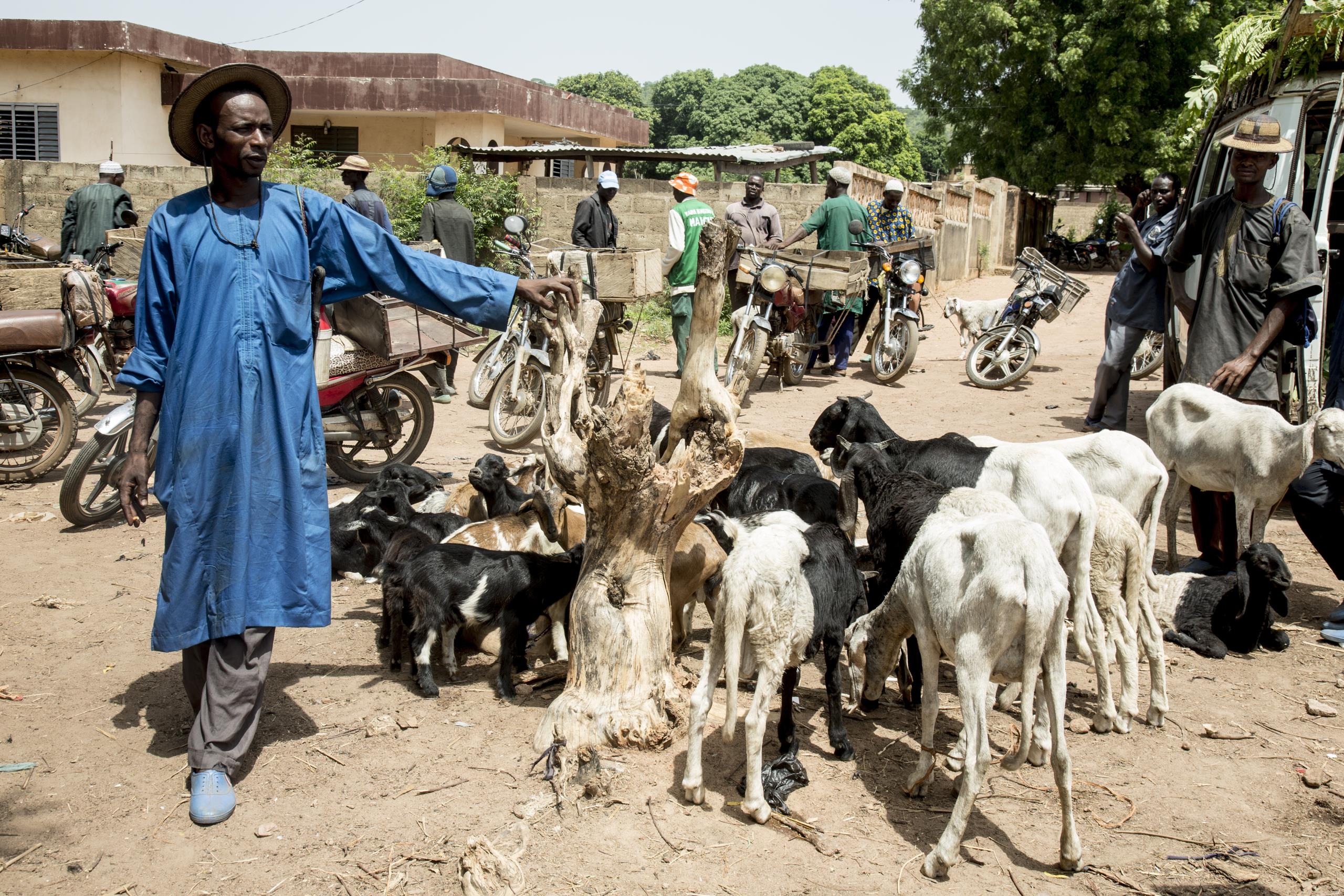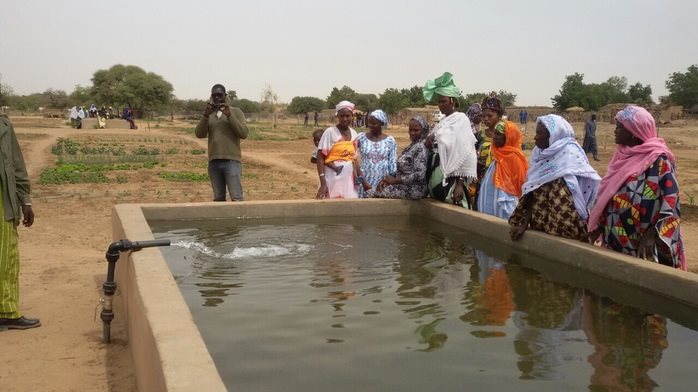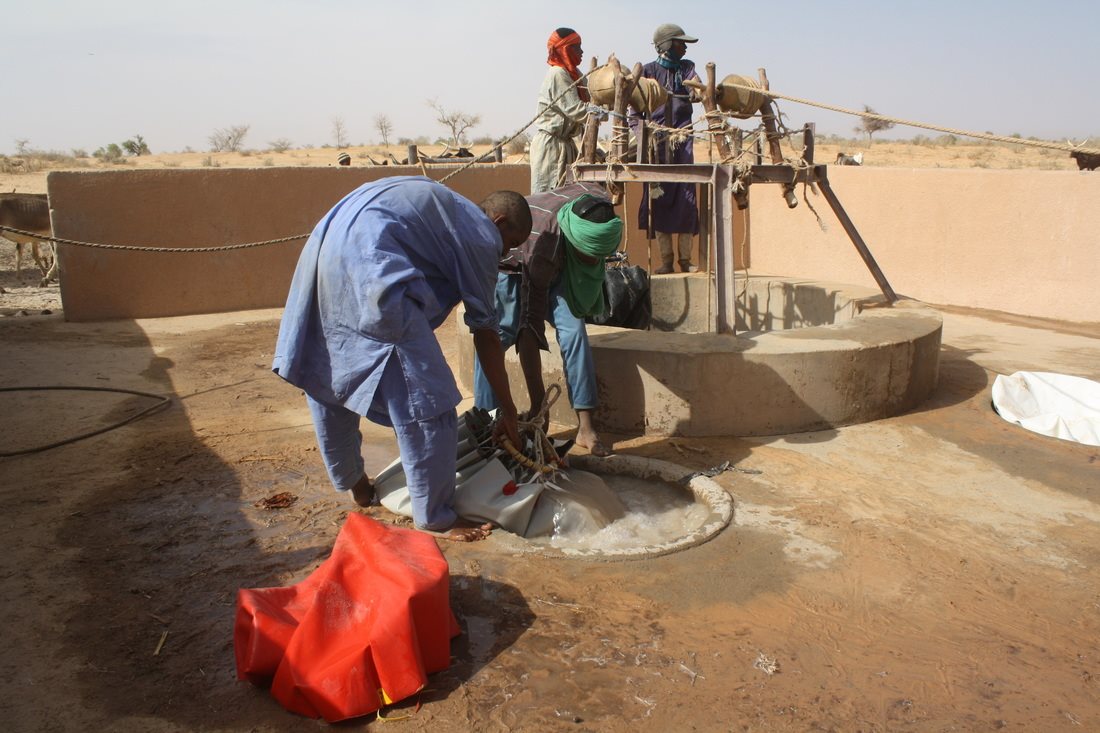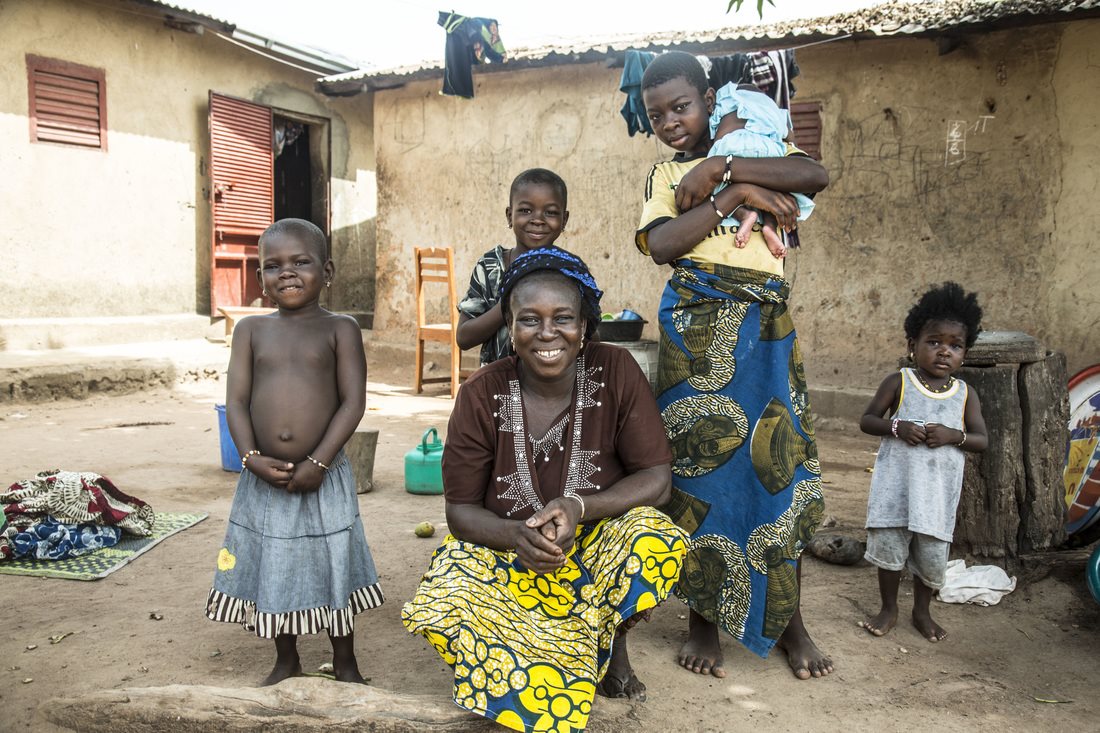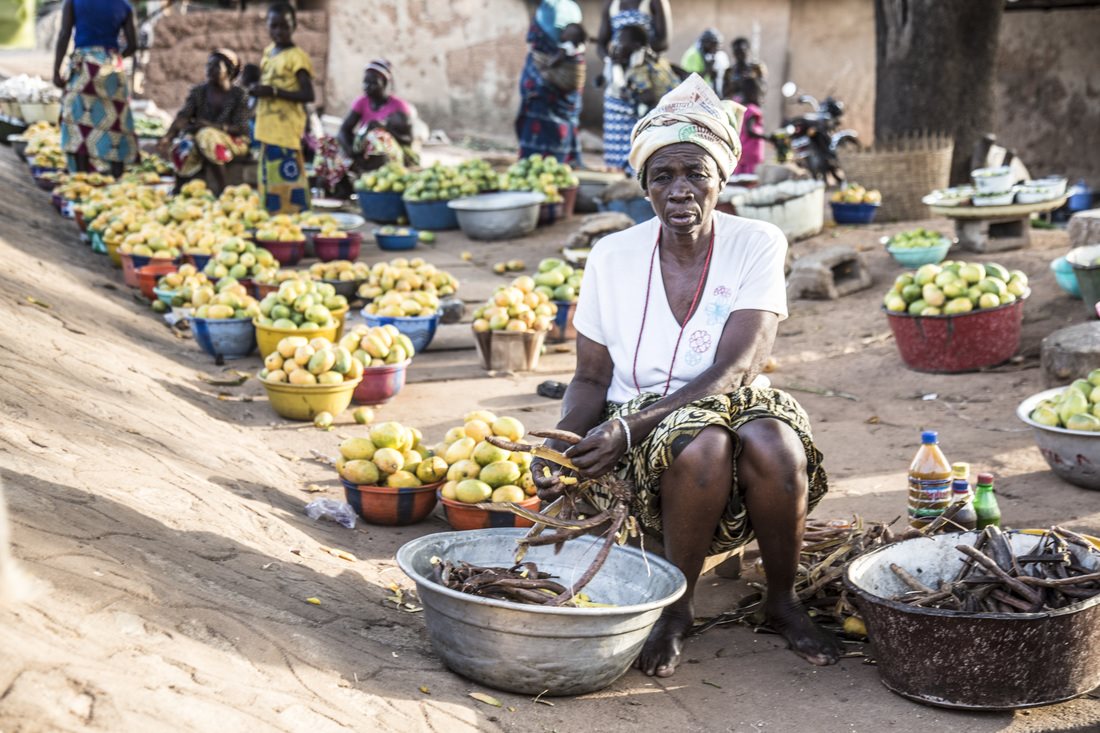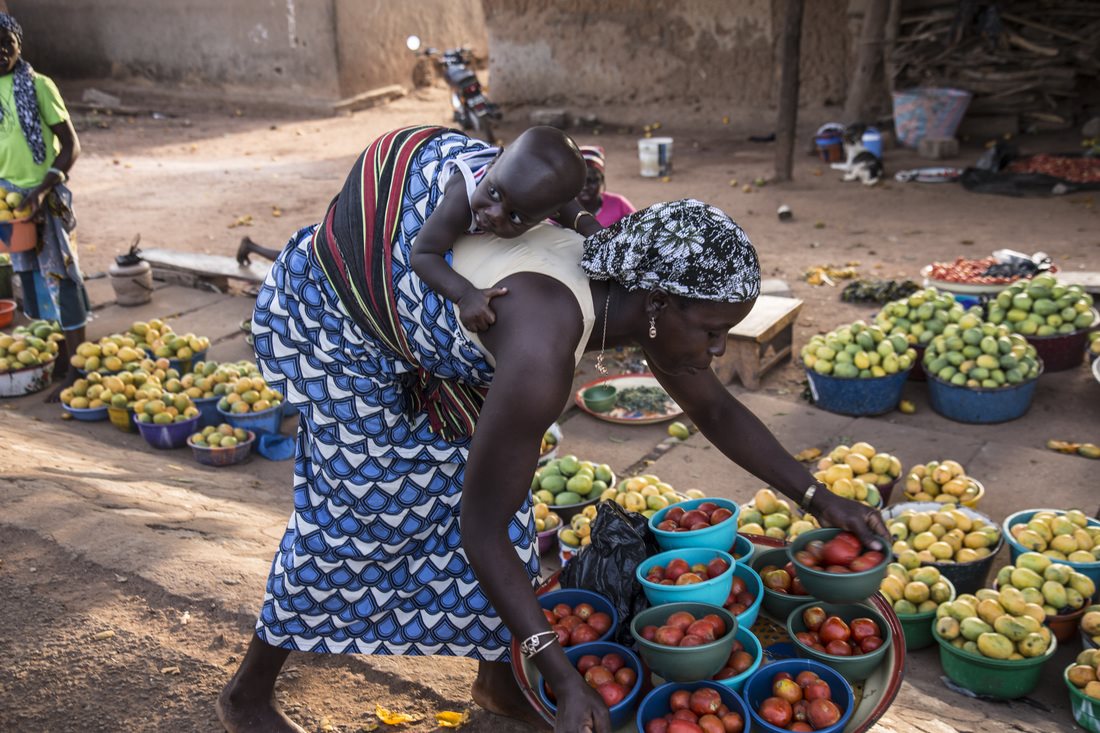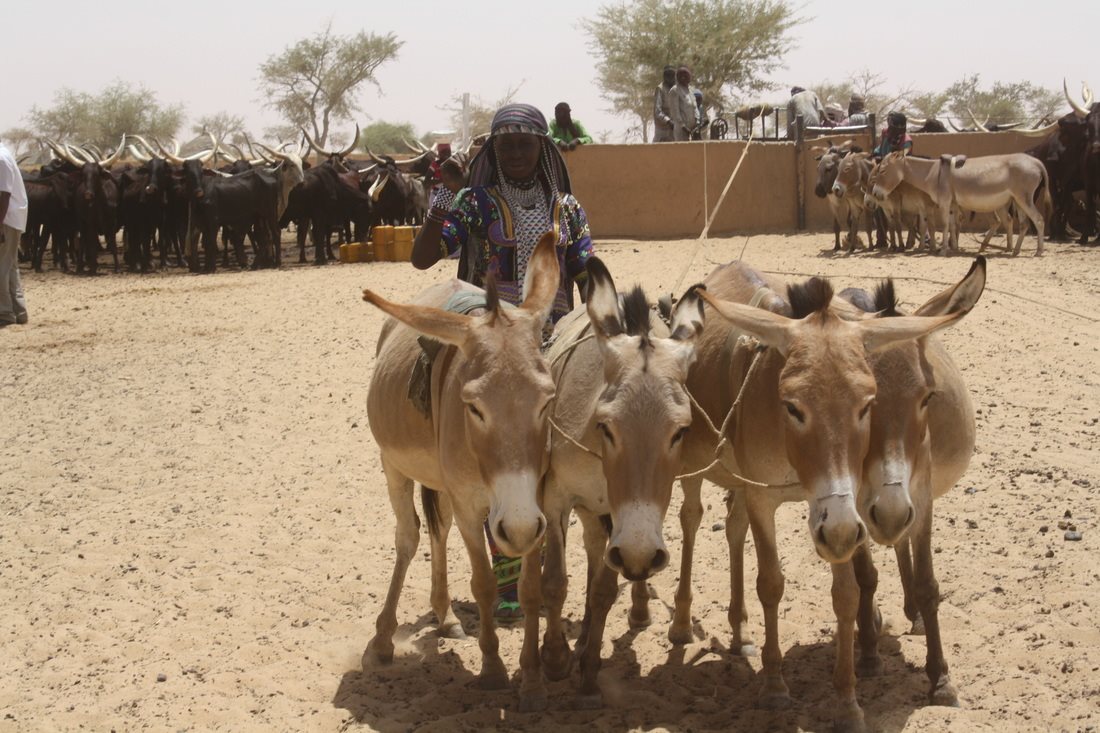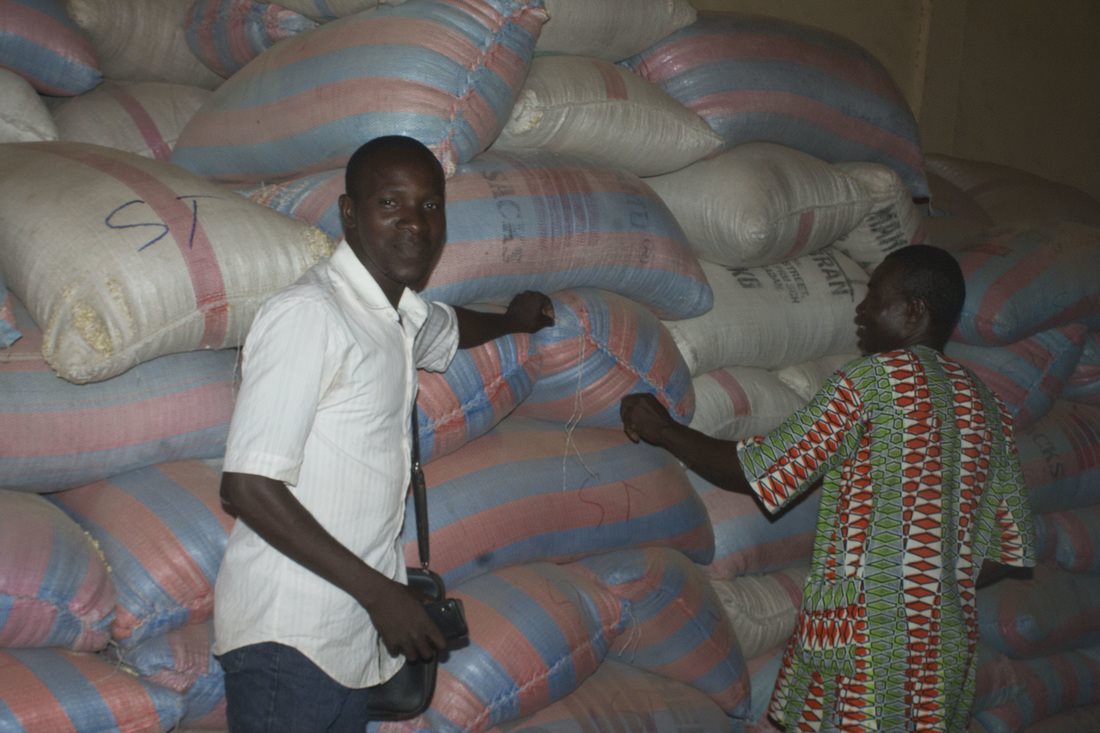
Objectives
Objectives
The Finance For Food programme (F4F) has the ambition to promote food security and economic development in the Least Developed Countries (LDCs) by providing an added value at the local level. It attempts to break the national and local barriers to the stimulus of a productive and equitable growth, thus providing sustainable means to increase the production and strengthen the local food system in the countries where F4F exists. This is an innovative programme grounded in cumulative experience on the field and tasked with enhancing and spreading the most relevant approaches to strengthen the impact of local level interventions in matters of food and nutritional security. It provides a direct support to central governments, local communities and their partners to identify investment needs, developing and operating the most appropriate responses in terms of targeting and using sustainable financial mechanisms.
The F4F programme is organized around 4 complementary components:
- Enhance the capacity of communities and local partners to identify the needs and possibilities for intervention. By developing adequate frameworks and tools to evaluate performances, opportunities and the limits of the local food system, F4F supports the design of more adapted policies and aid programmes allowing the local governments to play a strategic role in food and nutritional security.
- Support the inclusion of coherent interventions in the Local Development plans and identify the catalytic investments which can have a multiplier effect in the local food system. F4F supports local governments and programme stakeholders in the identification of coherent food and nutritional security interventions in the Local Development Plans and investment programmes. It identifies catalytic investments which can have a multiplier effect in the local food system.
- Strengthen the financial mechanisms for local actors. F4F supports local investments by providing strategic funding through subsidies, loans, warranties, equity, as well as advisory services, assistance and capacity building. This flexible toolbox allows for customization of the interventions to the specific situations and conditions of each country, thus maximizing the impact.
- Support a learning and exchanging experience process between the different partners. The programme sets up a learning mechanism by developing a community of practice, connected to global initiatives. F4F can be said to be a laboratory to test the pioneer and integrated approaches of UNCDF, thus allowing to enhance the four pillars of food security.
F4F contains a strong element dedicated to its impact evaluation with an in-depth analysis of the chosen projects and implementing mechanisms. The F4F team has committed itself to the careful evaluation of its results and the impact of its work not only to strengthen the design of future projects but also to identify innovative solutions, duplicable for the food security and which can be strengthened by the public and private sectors.
The F4F programme is implemented through 3 phases integrating harmonized strategic activities :
- Launch: During the first phase of the programme launch, national projects are harmonized with the Global Programme.
- Implementation and consolidation: Presentation of the diagnosis of the local food system and the local development planning tool, strategically adapted to the food security context of each country.
- Progressive withdrawal and restructuring: Transition towards a progressive withdrawal or programme restructuring to expand its operations. During this phase we expect at least a minimum of technical assistance from UNCDF and consolidating mechanisms will be available at the national level to continue the fundings.
Stay Connected
GET THE LATEST UPDATES TO YOUR INBOX
